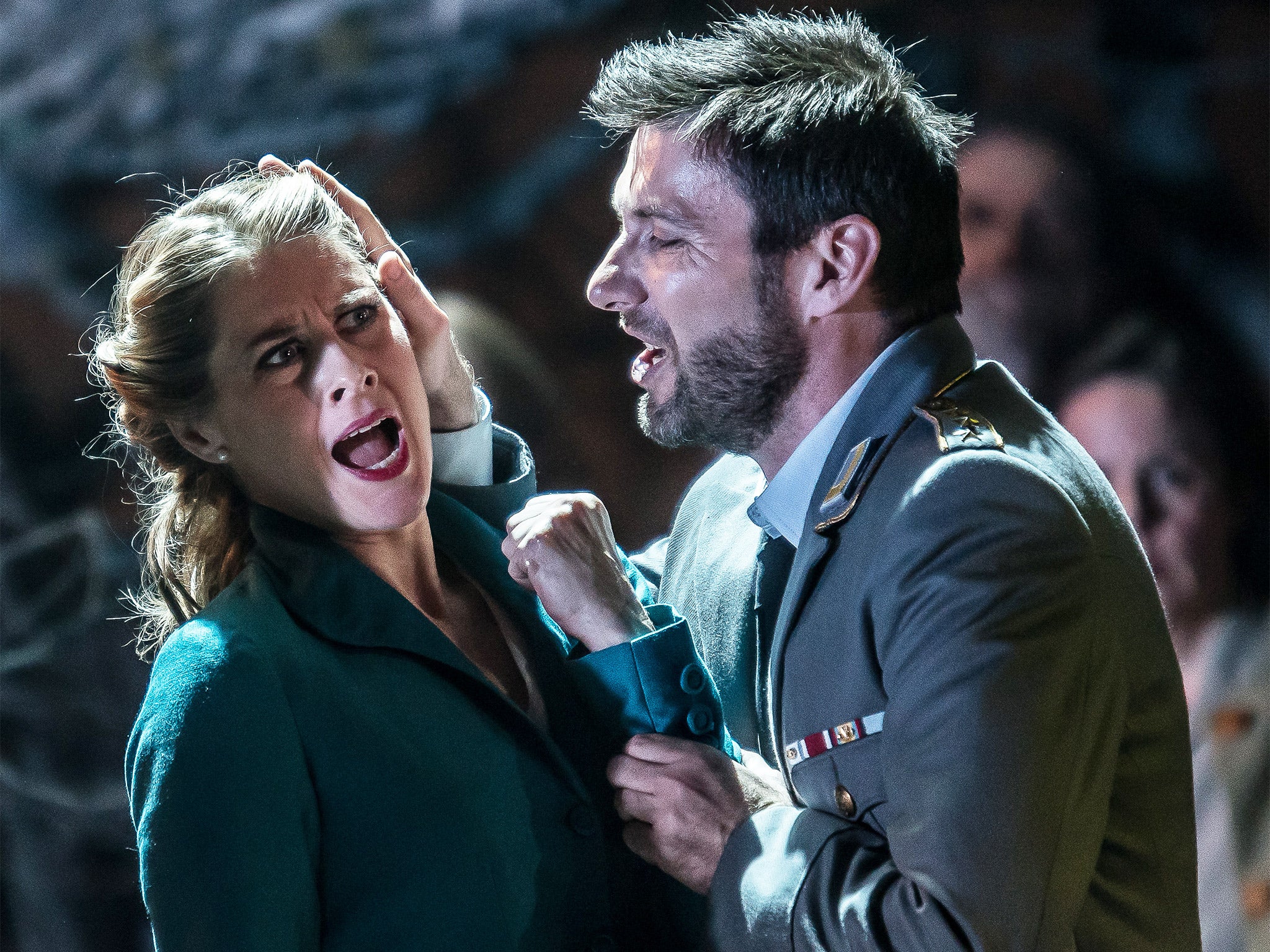Guillaume Tell gang-rape scene causes uproar at the Royal Opera House
As show is greeted with boos, director defends use of nudity and sexual violence

Your support helps us to tell the story
From reproductive rights to climate change to Big Tech, The Independent is on the ground when the story is developing. Whether it's investigating the financials of Elon Musk's pro-Trump PAC or producing our latest documentary, 'The A Word', which shines a light on the American women fighting for reproductive rights, we know how important it is to parse out the facts from the messaging.
At such a critical moment in US history, we need reporters on the ground. Your donation allows us to keep sending journalists to speak to both sides of the story.
The Independent is trusted by Americans across the entire political spectrum. And unlike many other quality news outlets, we choose not to lock Americans out of our reporting and analysis with paywalls. We believe quality journalism should be available to everyone, paid for by those who can afford it.
Your support makes all the difference.The Royal Opera House at Covent Garden is used to passionate responses from its audiences at curtain calls.
But a new staging of Guillaume Tell prompted an unprecedented response on its opening night, as a controversial gang-rape scene with full-frontal nudity prompted fury in the auditorium.
For the first time in critics’ memories, loud boos rang out during the production on 29 June and drowned out the music. Covent Garden’s director of opera, Kasper Holten, was unrepentant, although the Dane did admit to being surprised by the strength of the audience’s anger during the show, also known as William Tell.
He said the opera house would “not apologise” for the scene and refused to edit it, despite the chance that forthcoming live cinema and BBC Radio 3 broadcasts of the production could be disrupted.
The new four-and-a-half-hour staging of Gioachino Rossini’s 1829 opera, about the famed Swiss patriot’s fight against Austrian rule, opened on 29 June with the Italian director Damiano Michieletto making his debut at the Royal Opera House.
The crowd turned on the production in the third act, when a woman is portrayed as being sexually abused by feasting Austrian soldiers. The heckles and jeers started as soon as they assaulted her and stripped her naked.
While audiences at the opera in Italy are known for booing during performances, it has never happened at Covent Garden, according to The Independent’s opera critic, Michael Church.
“I have never heard anything like that in the middle of a scene at the Royal Opera House and I’ve been many hundreds of times,” he said. “But it was merited.”
The jeers came from all around the auditorium, he added, as the majority vented its anger. “The audiences are famous for being very outspoken,” Church said. “It is one of the good things about them.”
George Hall, a reviewer for The Stage, said it was the “most sustained booing I can ever recall during any performance at this address”.
Holten said the scene was intended to be uncomfortable and was “an honest attempt to talk about the reality of war” and the reality of sexual violence during conflict. “I do apologise if people felt we should have warned them better, as people may not want to be exposed to sexual violence,” he told The Independent. “But I am not apologising for the production. We are changing the warning but not the production.”
He criticised those who disrupted the production with boos. “It’s not for me to tell people how to behave, but my personal take is that there is every opportunity to express your feeling when the music stops either in the theatre or on social media,” he said.
“I have no problem about people voicing their opinion on the arts passionately, but I would rather it just didn’t happen while the music was playing.”
Other audience members hit back, saying the “vociferous minority” stood out. Ray Evans wrote on the Royal Opera House website that they should have left quietly “and not stayed to interfere with the enjoyment of others who feel differently about it”. Another called the hecklers “hooligans”.
Join our commenting forum
Join thought-provoking conversations, follow other Independent readers and see their replies
Comments